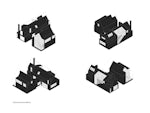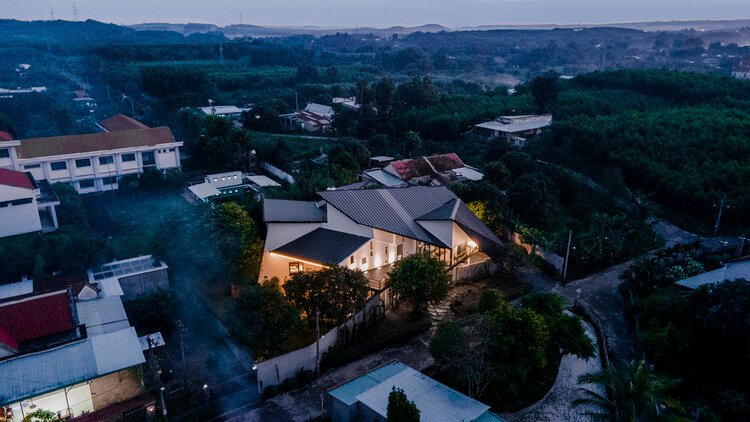Horton Harper Architects Design Multigenerational Fox Residence
Fox Residence – Located in Duck Island, an unpretentious neighborhood overlooking the Cuyahoga River and Cleveland’s low-lying industrial areas, the home sits amongst dozens of late nineteenth-century worker cottages.
Architizer chatted with Michael Horton from Horton Harper Architects to learn more about this project.
Architizer: Please summarize the project brief and creative vision behind your project.
Michael Horton: Our client wanted a home that could accommodate her growing family throughout all stages of their lives. Historically, the site consisted of two, separate parcels, both previously occupied by single-family homes. The homes were demolished by previous owners after decades of neglect and disrepair. As a result, the new home was conceived as two buildings, connected to one another via a single-story room, which serves as the main entrance into the house. This physical separation of the two buildings repairs the disjointed sequence of houses along the street, while affording its inhabitants the privacy desired in multigenerational homes.
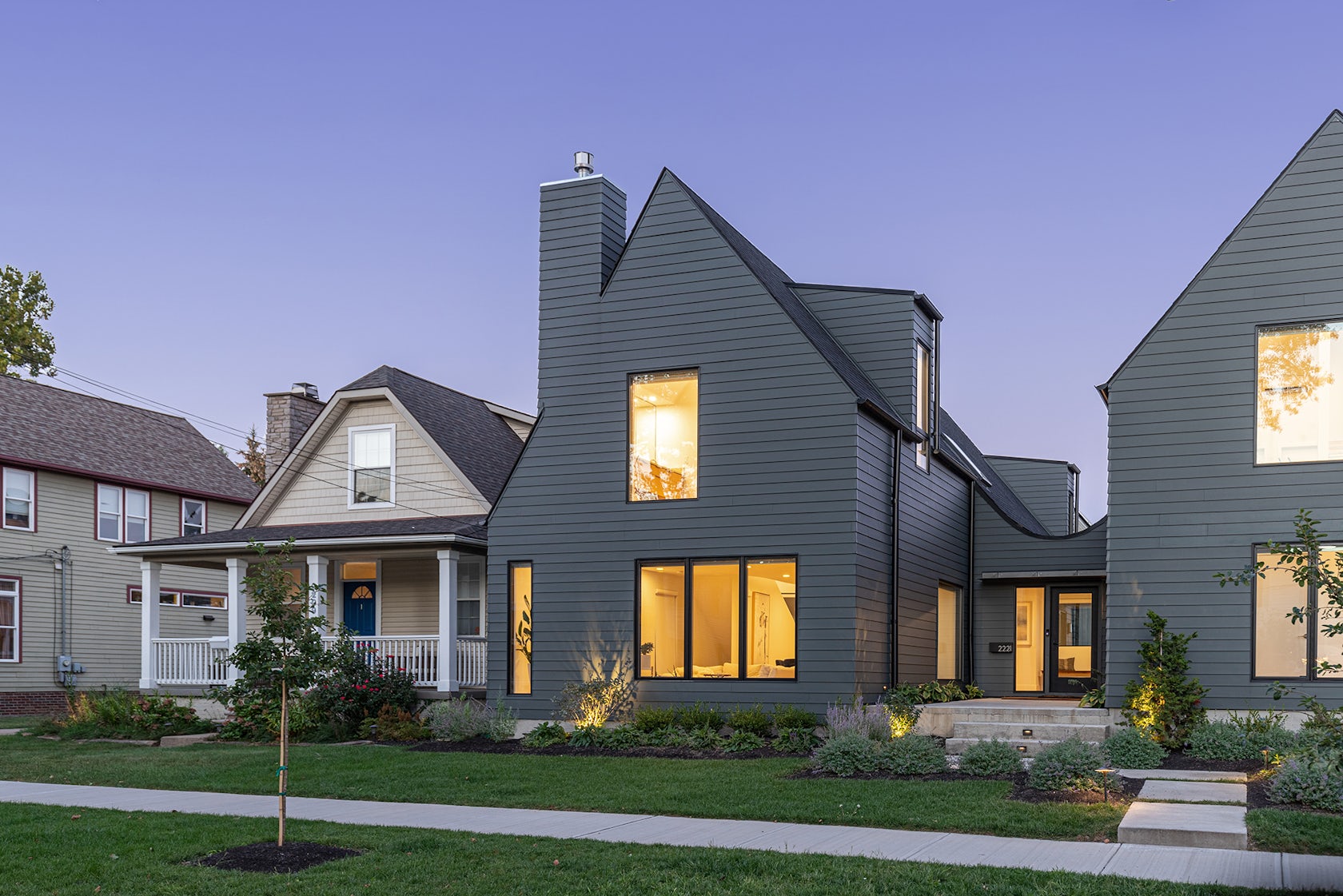
© Horton Harper Architects
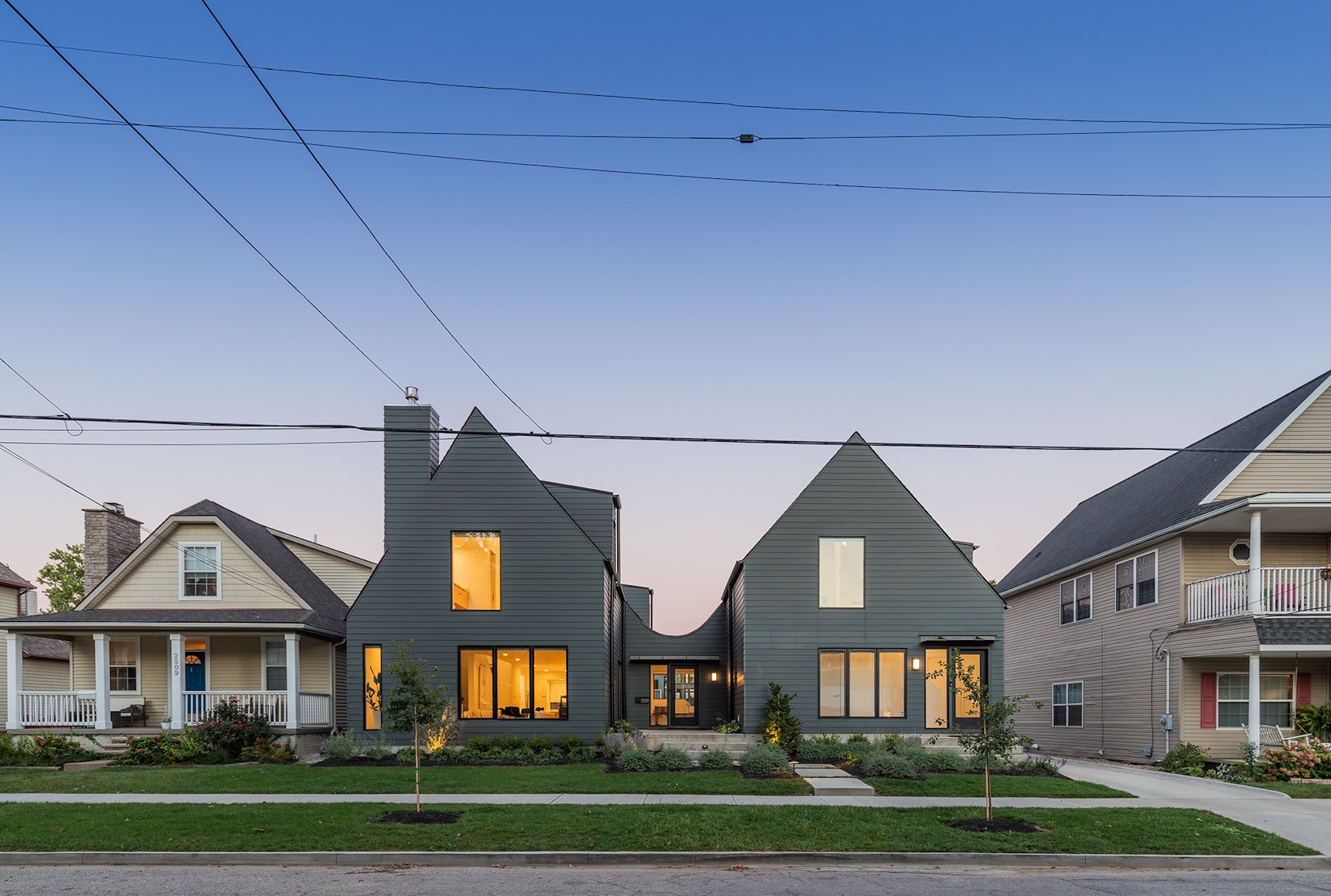
© Horton Harper Architects
What inspired the initial concept for your design?
The house sits amongst dozens of late nineteenth-century worker cottages, and it was important to respect the scale and cadence of the existing houses on the street. On the exterior, the home retains the appearance of two separate gabled-roof structures. Their profiles are irregular and playful. On the interior, thickened, double framed ceilings create symmetrical, vaulted rooms, while thickened walls along the perimeter frame views to the outside.
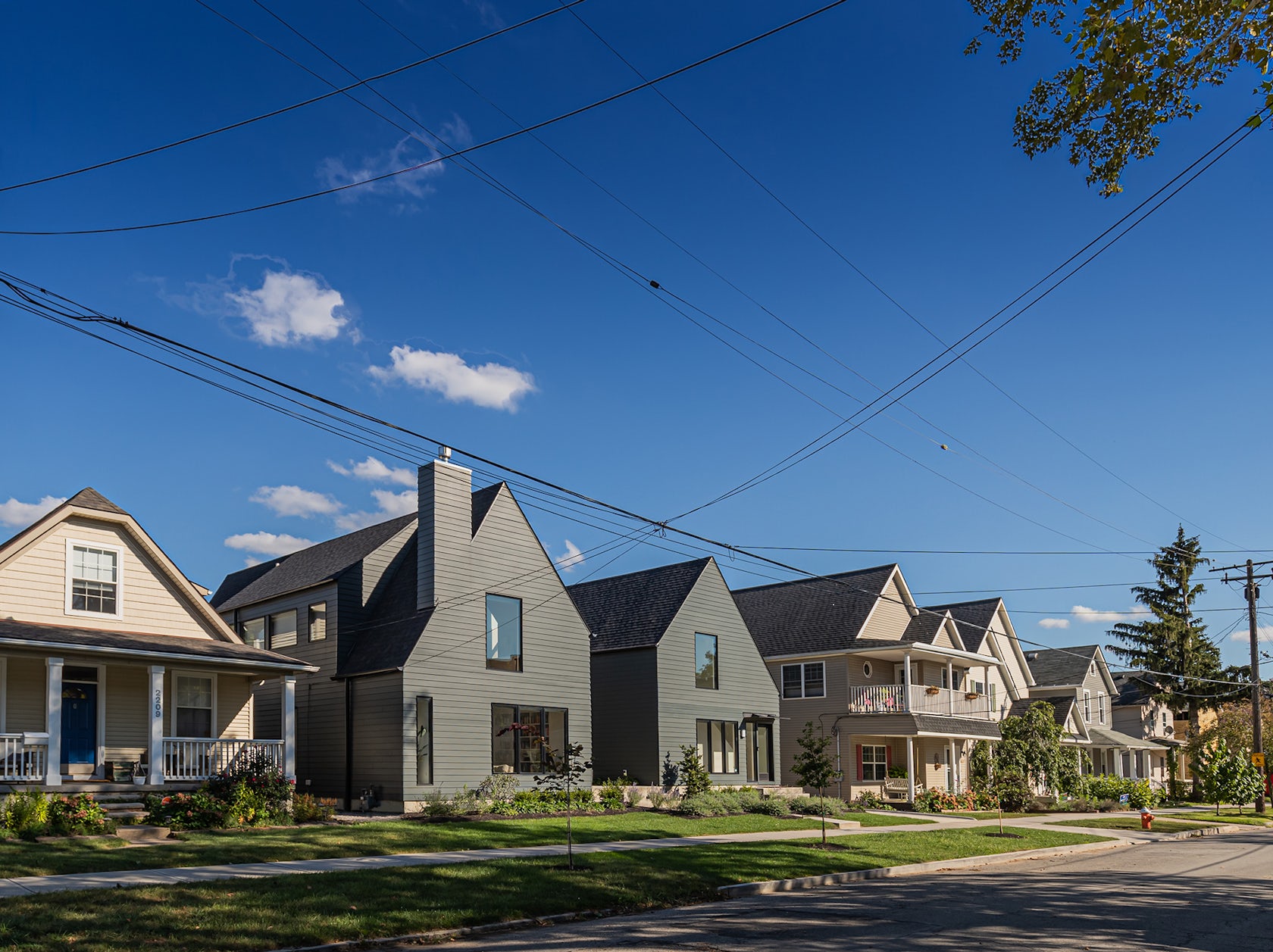
© Horton Harper Architects
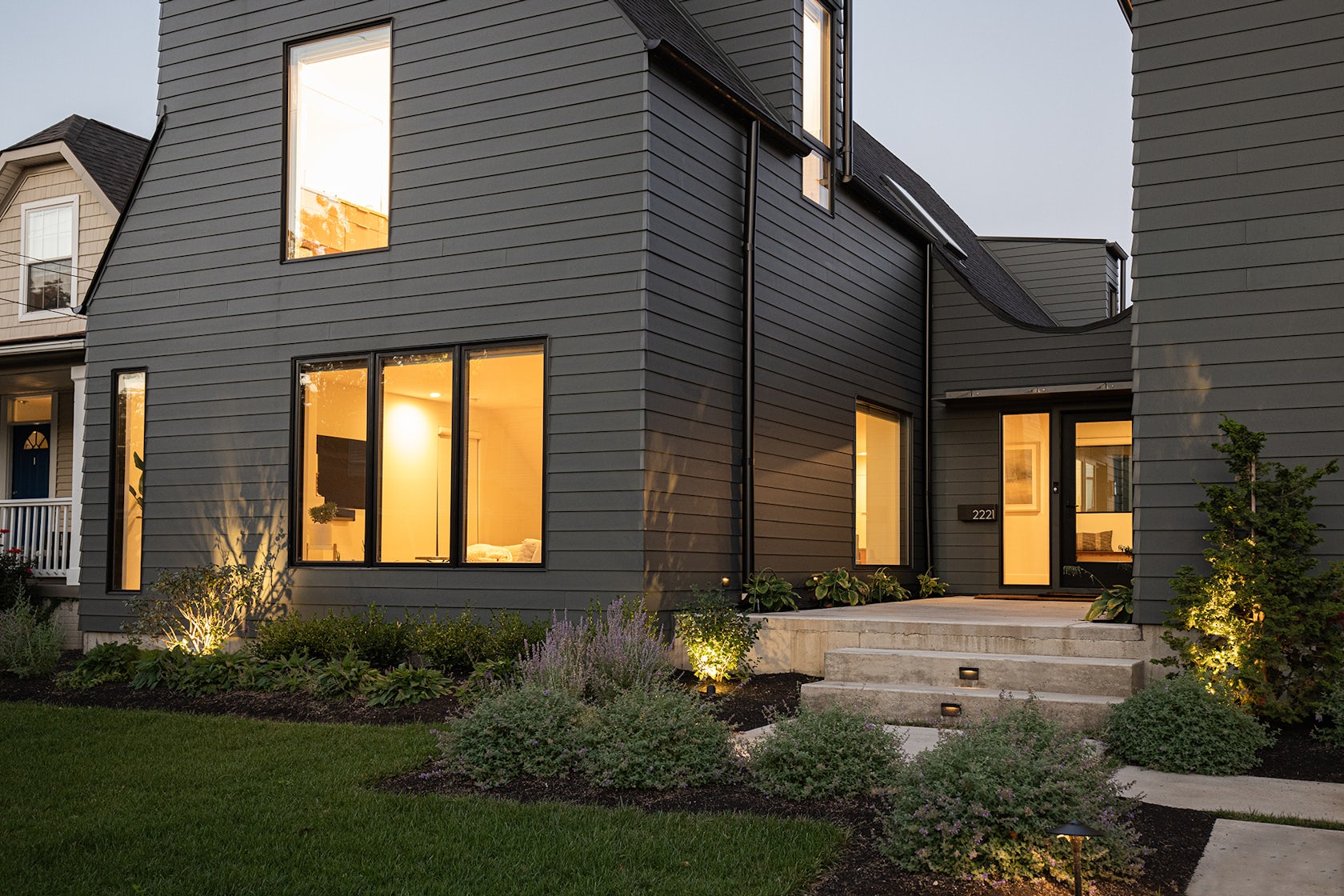
© Horton Harper Architects
What do you believe is the most unique or ‘standout’ component of the project?
We were interested in designing something that could ‘stand out’ and ‘blend in’ at the same time. I think the articulation of the roofline helped us achieve this. The roofline connects the two houses over the entrance, while also giving each house its own unique figure. Since the houses have the same height, width and color, the subtle shifts in the roofline and accentuations to the chimney and dormers allow the house to read as a singular object or two separate objects depending on your vantage point.
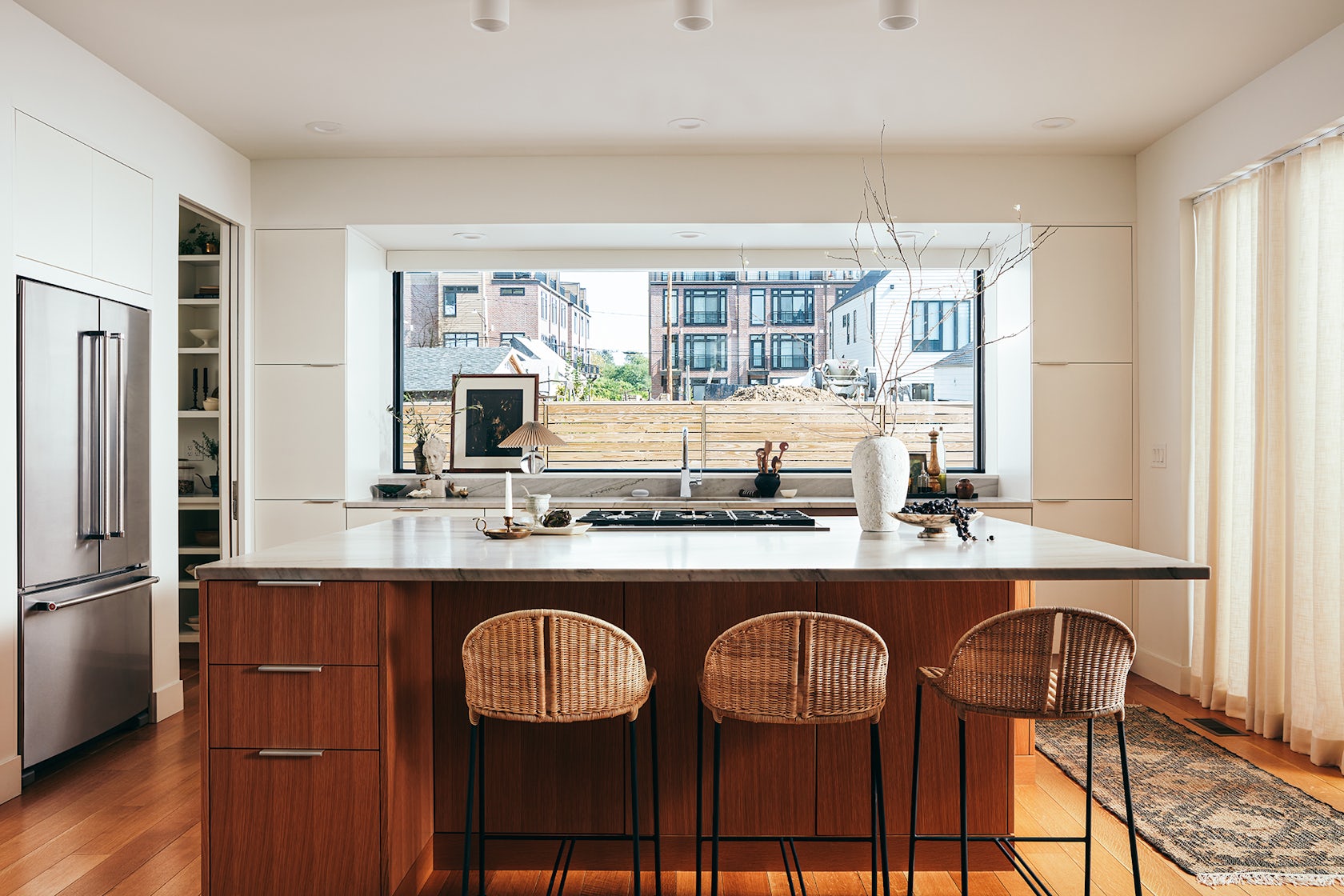
© Peter Larson
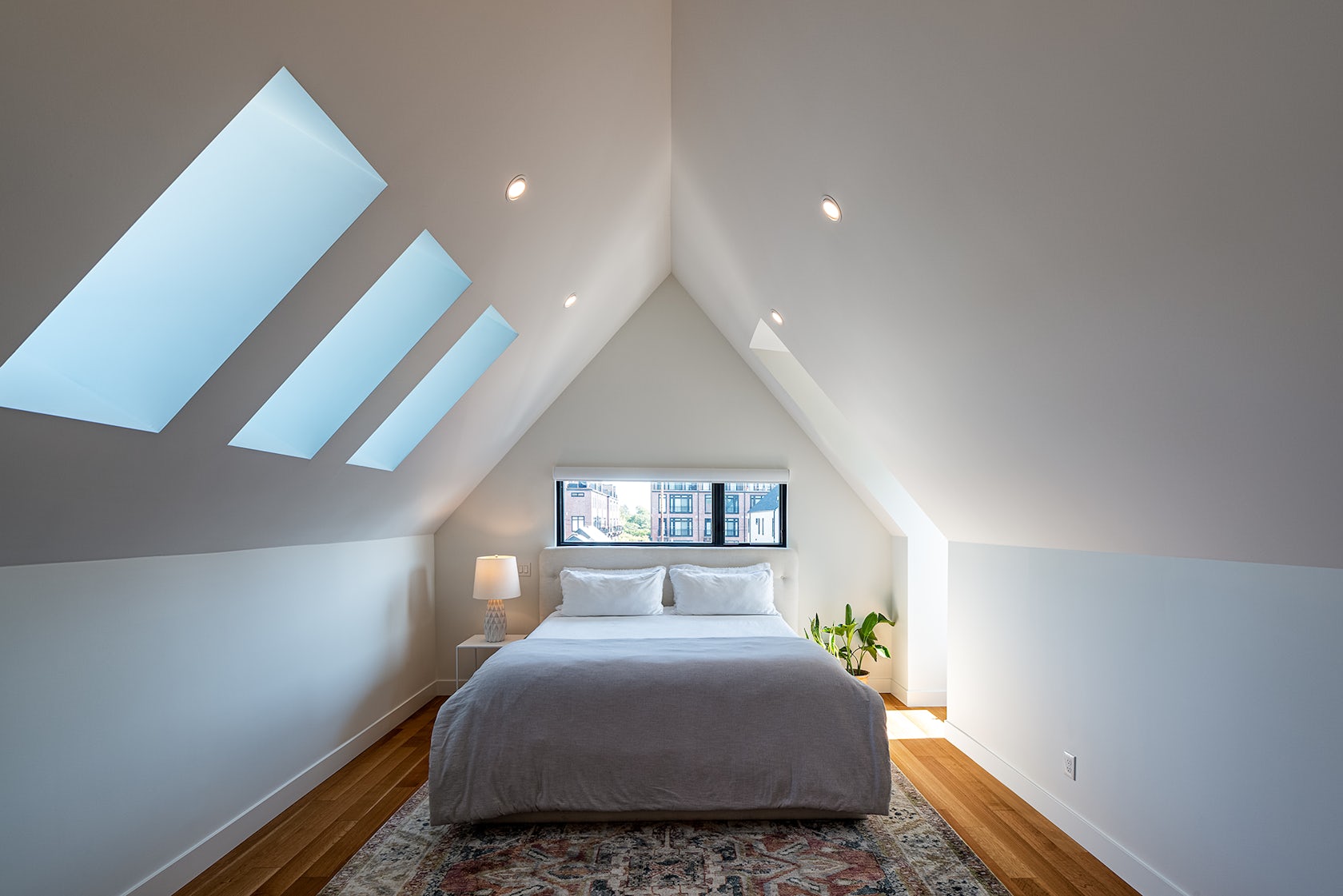
© Christian Phillips
What was the greatest design challenge you faced during the project, and how did you navigate it?
We knew the house was going to be larger than the other homes on the street, especially since it occupied two parcels, while every other house only occupied a single parcel. Our challenge was to make the house fit in loosely with the other homes without replicating them. As a result, the second floors ceilings are vaulted in all locations, which helped lower the perceived height of the house when viewed from the street. The dormers are functional and necessary as they allow for head height along the perimeter of the house, but they are also a bit playful when viewed from the exterior due their irregularity. We designed the house to feel big on the inside and small on the outside.
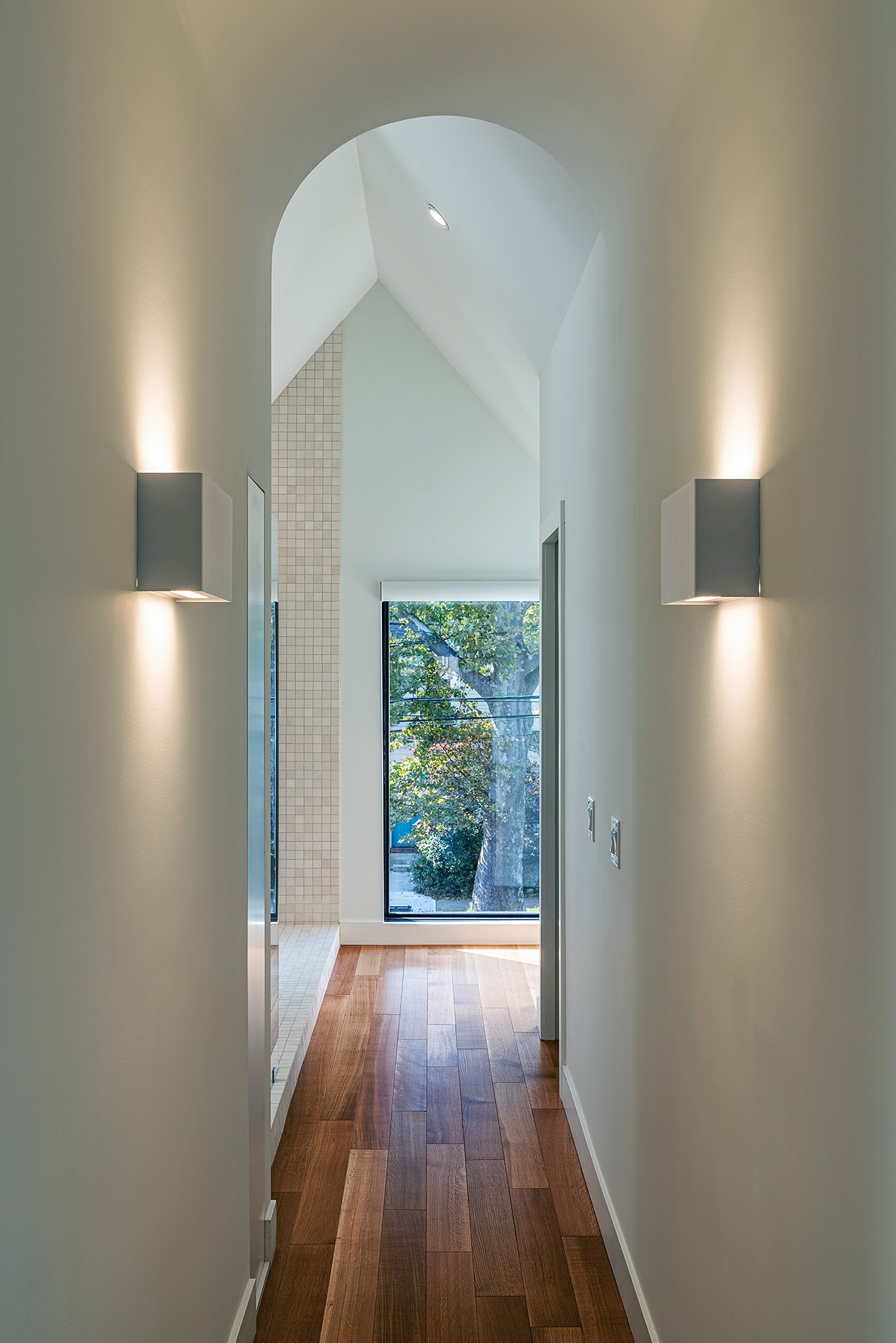
© Christian Phillips
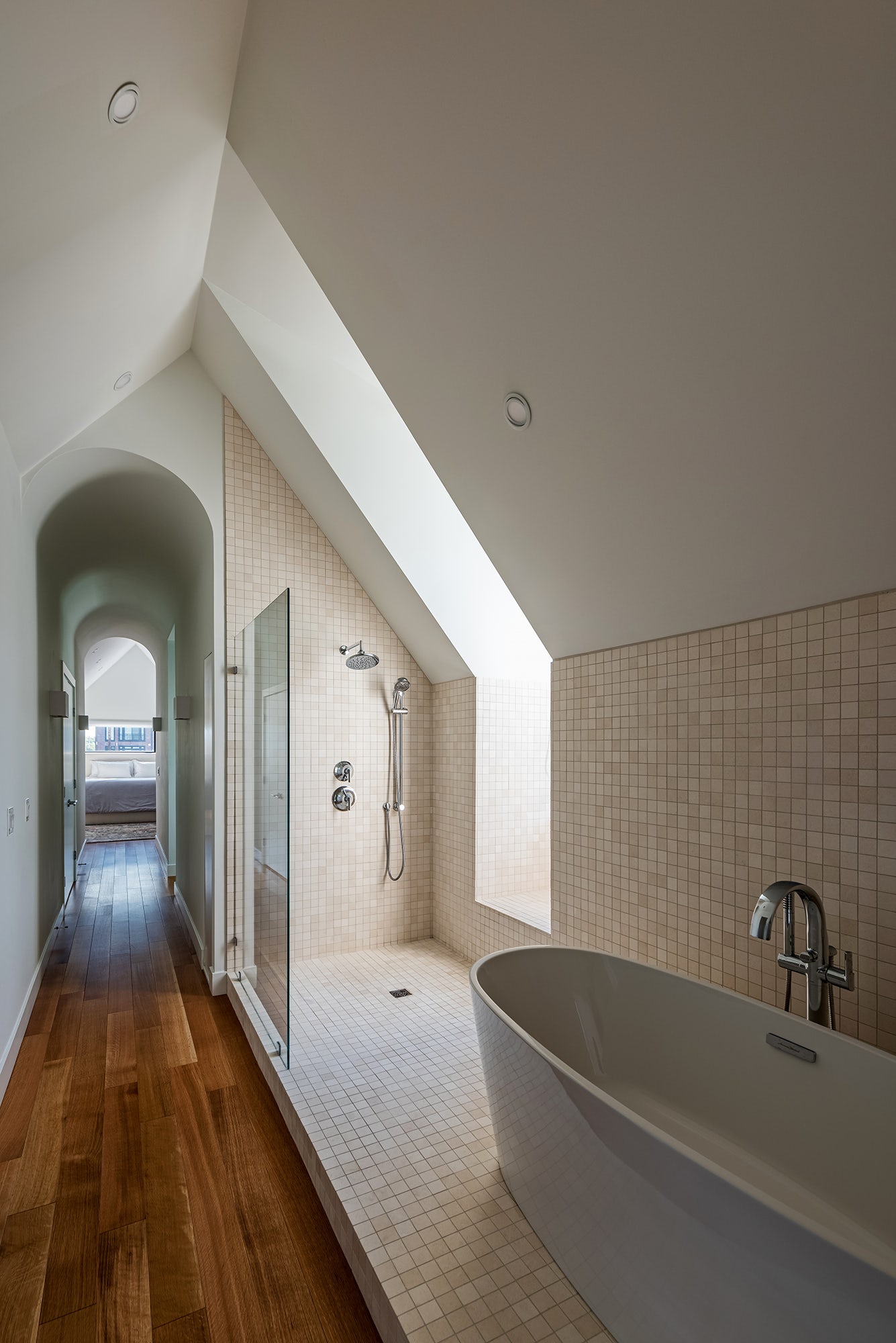
© Christian Phillips
What drove the selection of materials used in the project?
The home was constructed on a modest budget relative to its size, and like its late nineteen-century counterparts, uses humble, readily available materials such as painted clapboard siding and asphalt shingles.
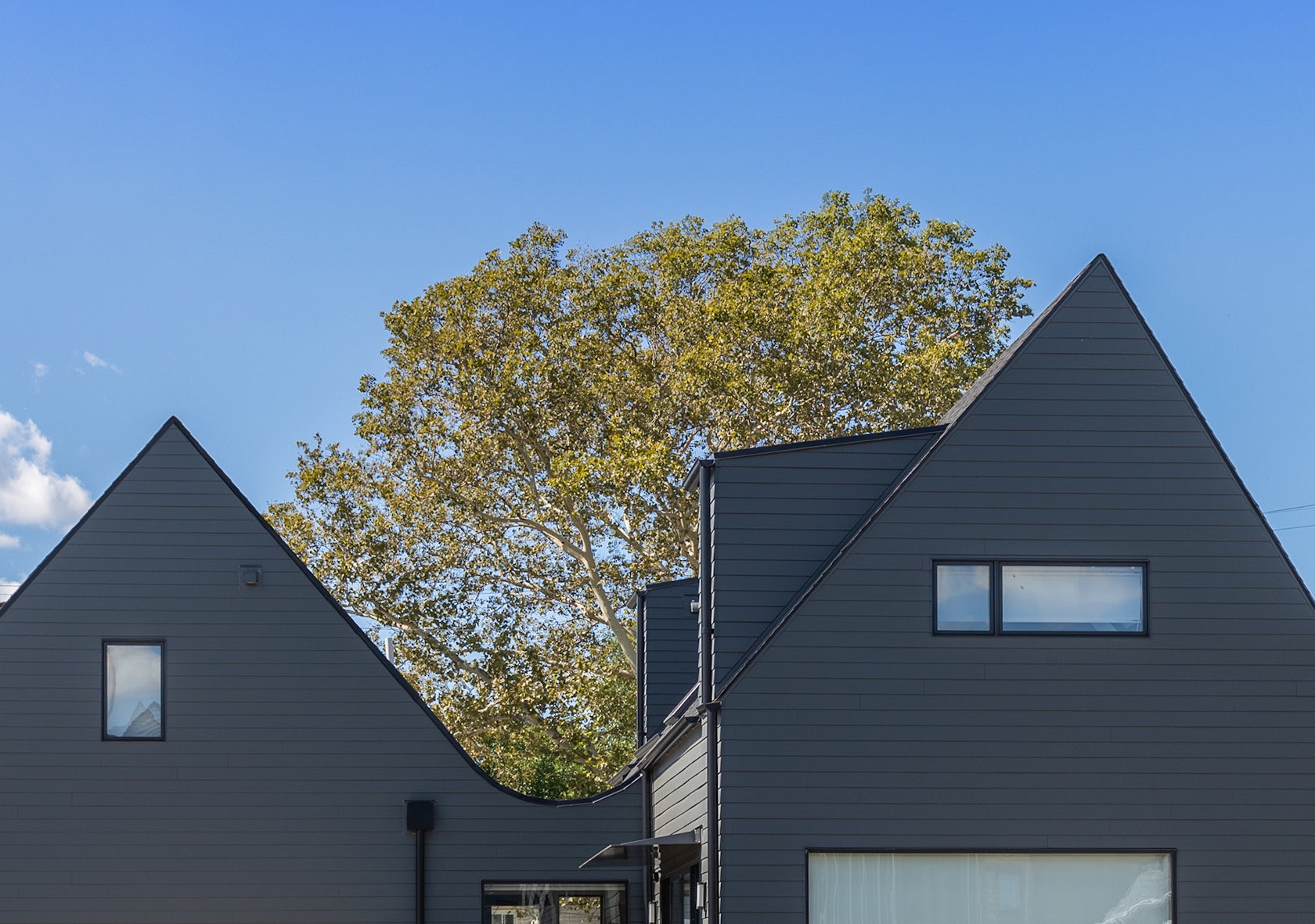
© Horton Harper Architects
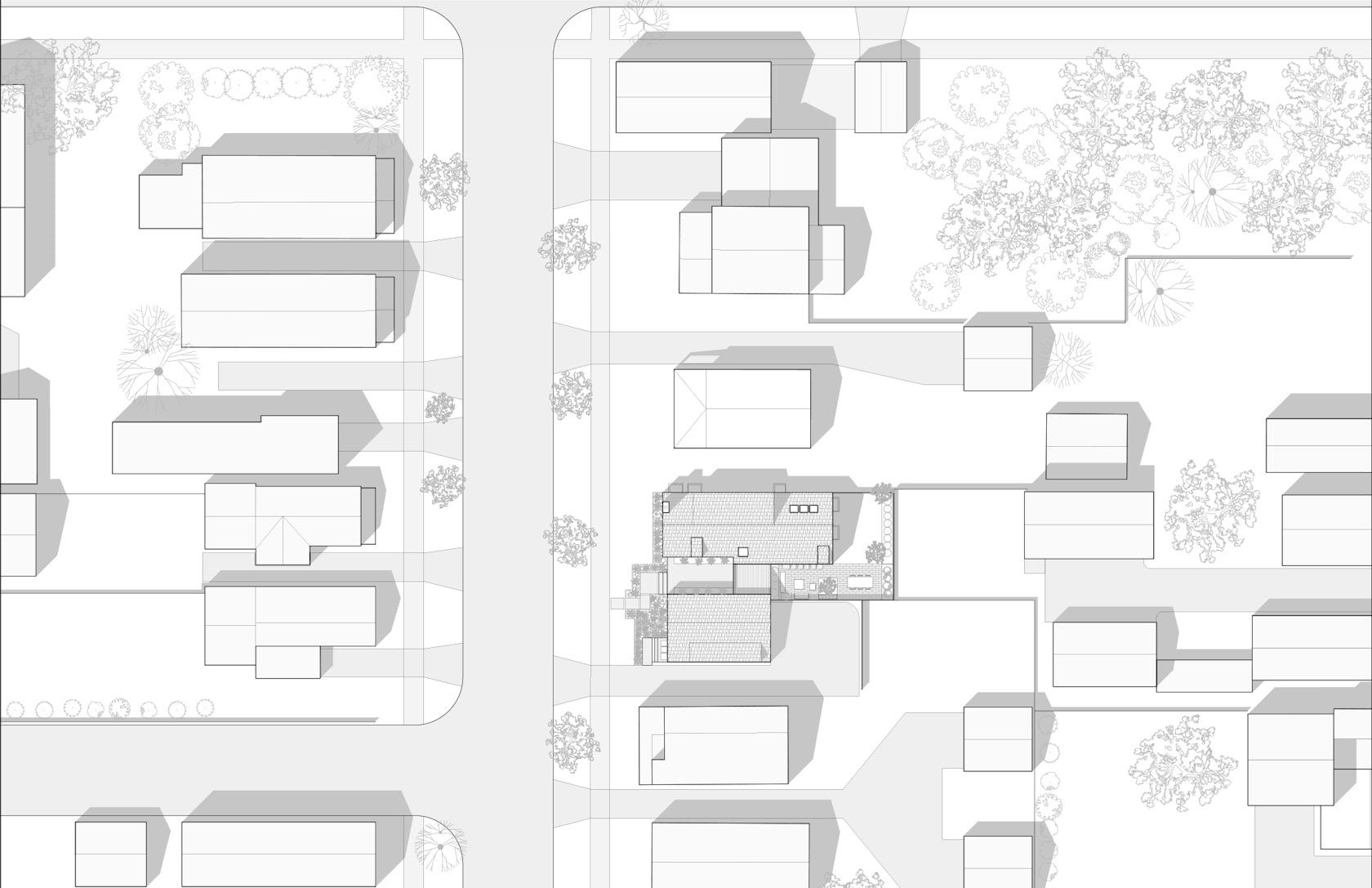
© Horton Harper Architects
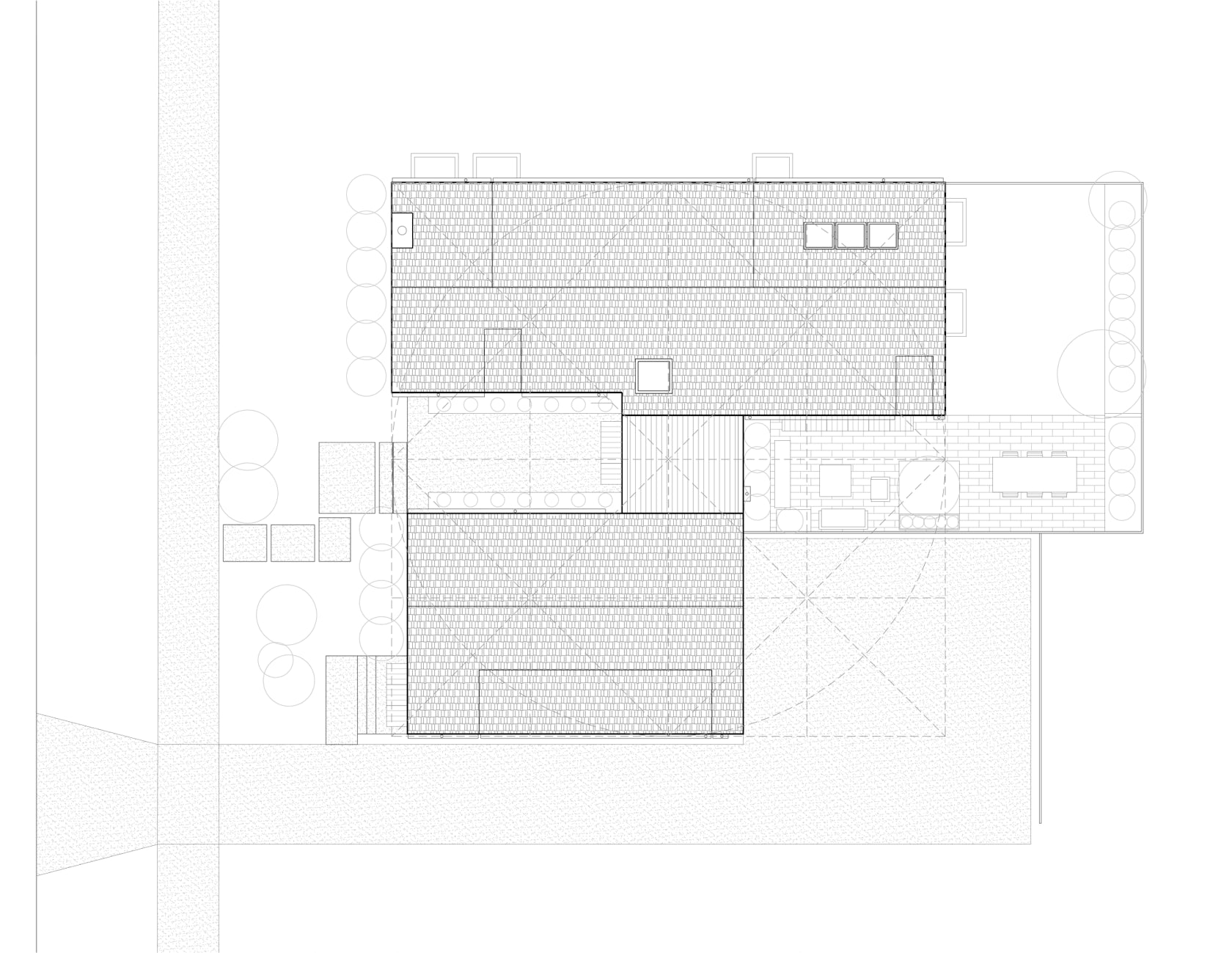
© Horton Harper Architects
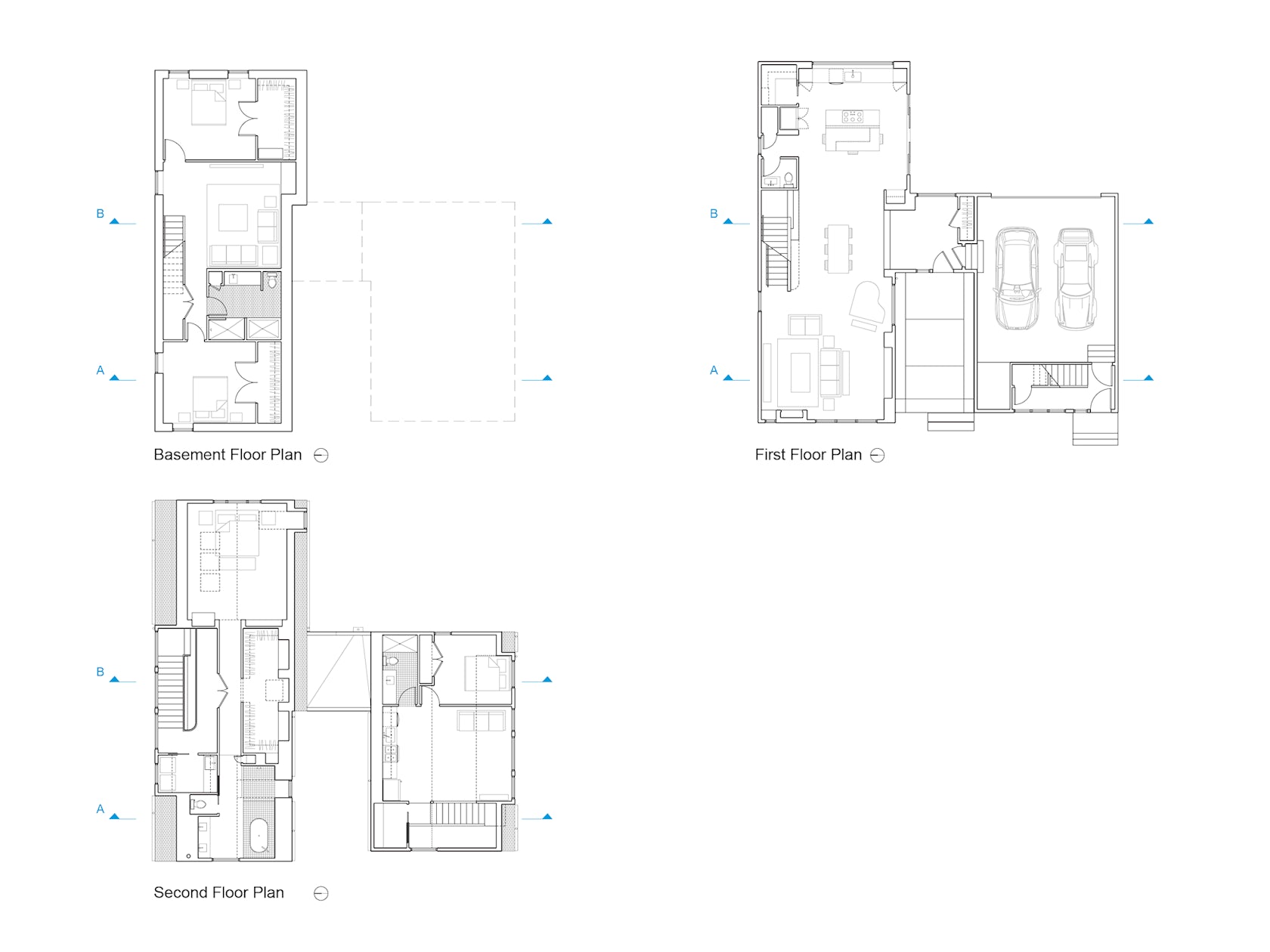
© Horton Harper Architects
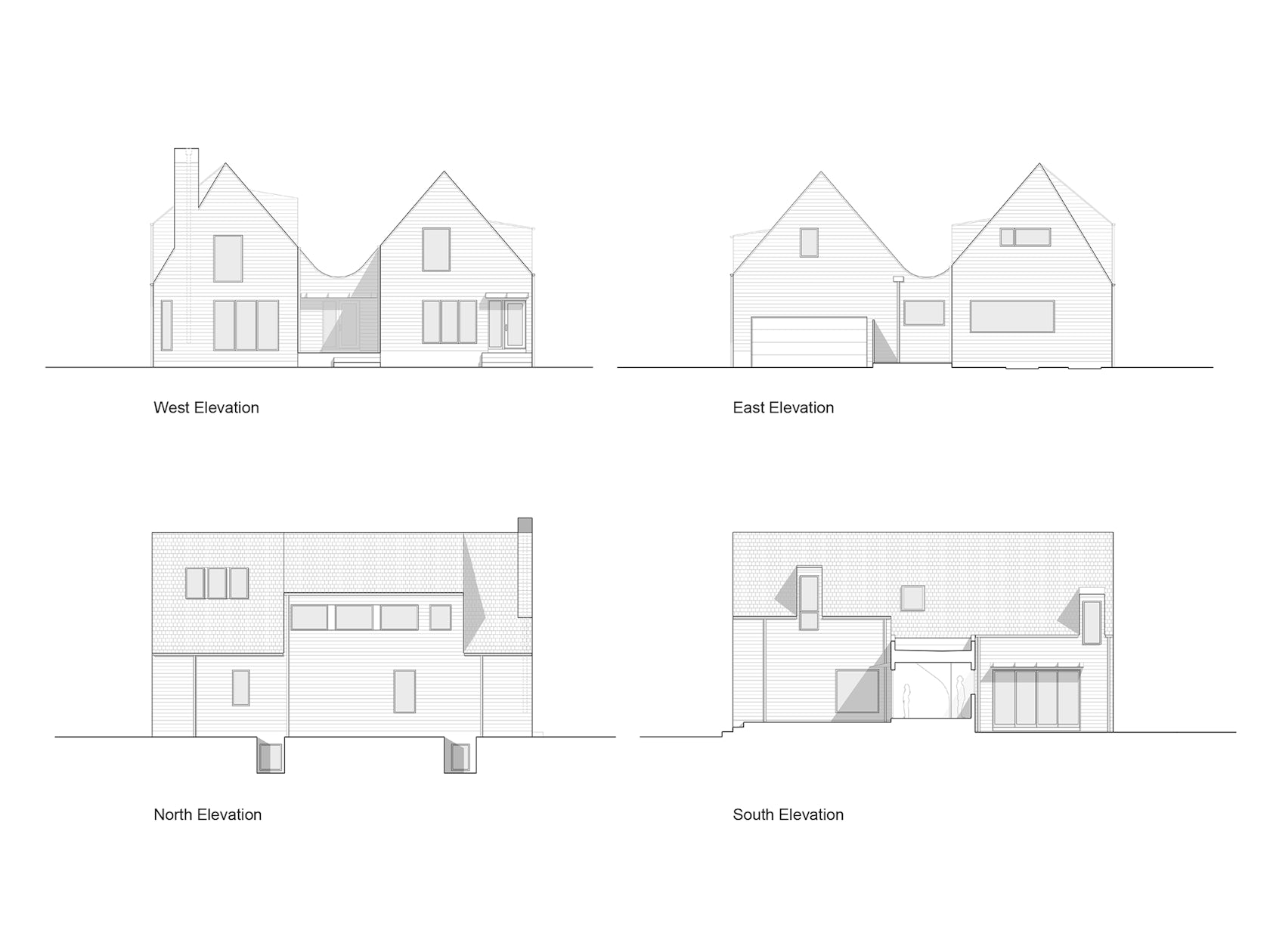
© Horton Harper Architects
Credits / Team Members
Michael Horton, Kerry Sandoval
Consultants: Structural Engineers: I.A. Lewin & Associates
For more on Fox Residence, please visit the in-depth project page on Architizer.

